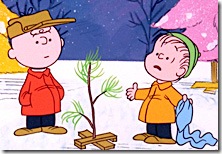
Over the past week my family and I have been playing with an early Christmas present, an XBOX game called Rock Band. This game one-ups the other popular rock simulation franchise, Guitar Hero, by allowing the player to perform on guitar, drums or with a mic. A sort of guitar hero meets karaoke, it even allows different players to work together in forming a rock band either over the Internet or in their living room, side-by-side.
I have adopted the guitar as my own instrument for acquiring fame. I have already mastered Don’t Fear the Reaper (no cowbell, unfortunately), Wanted Dead or Alive, Mississippi Queen and Blitzkrieg Bop, at medium difficulty, and am currently rehearsing Suffragette City, which has a wicked A-X-Y riff (XBOX control buttons, naturally, not notes) that I cannot seem to get the hang of.
The game is wonderful, though as I play through I am flabbergasted by the number of songs I do not recognize. Who are Vagiant, or Anarchy Club, or Crooked X? There are other groups I know by name, like Weezer, Radiohead, and Foo Fighters, but until now I couldn’t have named a song by any of them. My knowledge of popular music seems to have ended sometime in the late eighties, and there is a decade and a half lacuna following that which I am loathe to fill. Added to this the great number of metal anthems in this game combined with my ignorance of the Bon Jovi catalogue and the Metallica repertoire (though I do know — who wouldn’t — Rush’s Tom Sawyer and Black Sabbath’s Paranoid), and you may get a sense of the cultural irrelevance that washes over me as each new playlist is thrown onto my screen.
Worse, I believe I threw out my back during the extra points phase of Nine Inch Nails’ The Hand That Feeds, and now rest supine, forbidden to play until my back heals or eventually snaps back into place. How do aging rockers do it? Keith Richards apparently has fresh blood transfused into his system every few years, but I believe his case is anomalous.
Playing at being a rock star does have that element of grasping at one’s lost youth to it. Like the elixir imbibed by Richards, rock rhythm and tonal inflections are absorbed by the air-guitarist and, for a brief time, he undergoes a spiritual transmutation — one that must be accomplished in privacy, of course, lest reality, or perchance an unfortunately placed mirror, dispel the glamour.
Much of the current literature — often found in blogs, of course — discusses video games and virtual worlds as a sort of escapism. The notion is that the unfulfilled middle-manager may find an emotional outlet for his work-induced frustrations in virtual games such as World of Warcraft, where everyone and anyone has the opportunity to be a hero.
I am not sure that this quite captures the phenomenon, however. With Rock Band, the goal is not so much to escape one’s reality but rather to participate in a different one — more of a pull than a push, so to speak. Plotinus, though in a different context, spoke of it as a hypostatic union; a union between oneself and a more perfect version of oneself; something that has the character of fulfilling one’s nature rather than erasing it.
Such is my feeling when playing air-guitar on the XBOX. I don’t want to be someone else, but instead simply want to release an aspect of myself that requires lowering the bar a bit, through technology, and closing the gap between myself and the gods of rock and roll. Surely this is the origin of all technology since Nimrod’s tower, brought down by Jehovah for its impertinence. Technology lifts us up, giving us health and the promise of immortality through medicine, cleverness through information technology, courage through online role-playing, and happiness through pharmacology. Technology removes our frailties, leaving us as we were meant to be before the fall: young and immortal.
Speaking of growing old, I attended a Bob Dylan concert a few months ago. Bob has been going through a bit of a revival, his U.S. tour coinciding with a documentary by Martin Scorsese and even a feature length biopic. I have not been able to find an adequate way to write about the event, which I and my companions walked out of. To say that Dylan couldn’t sing seems to be missing the point, since this charge has always been leveled against him. And to say that I did not like the new style he was playing also makes me sound like those who criticized Bob for going electric back in the day.
I might draw the contrast between Bob and Elvis Costello, who opened for him. Elvis played several songs solo, both old and new, only changing guitars on occasion to fit the piece. He was the Elvis I imagined, comfortable on stage, able to work the audience, singing in his off-key way to perfection. He was the archetype of the solo college musician, fitting complex lyrics into a structured form meant to invoke interlaced feelings of sympathy and alienation — the alienation of the artist — in his audience. Like a great beast, the audience responded to his coaxing, and he guided us through a peculiar journey and then deposited us gently when his set was over.
According to Jung, archetypes recur across cultures, and we seek them out, attempting to fill the recesses established in our minds. Most of all we seek heroes, not because we seek to be heroes ourselves, necessarily, but because we have an inchoate sense that there must always be heroes. Shakespeare provided heroes, sometimes twisted, sometimes broken, but heroes nonetheless, on the stage. The modern rock star transforms himself to fulfill this role established for him. The form required for the hero changes over time, and changes with context; Dylan was always able to adapt to these changing roles. He served as a cipher, reflecting the image that people required of him.
The Scorsese documentary, built around a ten hour interview with Dylan, portrays a man who sees none of the depth in his own lyrics that others impute to them. Perhaps he is simply being playful. He discusses a radio interview in which the host asks Dylan whether — actually, insists that — A Hard Rain’s a-Gonna Fall is about nuclear ash and the madness of nuclear proliferation, to which Dylan responds that the song is about rain, which is sometimes heavy, you know.
Again and again, however, Dylan was able to capture the spirit of his times, several times, and people found in his lyrics answers to their questions and anxieties. My favorite Dylan album is Desire, which is a combination of electric protest songs and wild fantasies, all within a cowboy motif. I can’t say what questions he answers for me in this, but I do know that I return to it again and again, and it puts me in a happy place.
According to Giambattista Vico, the 18th century Neapolitan philologist, the secret of metaphor is that it is not based on similarity, but rather on identity. The secret of the hero is not that he makes himself resemble the classic hero. He becomes that hero, transforming himself as needed, internally, until identity is achieved. “The true war chief … is the Godfrey that Torquato Tasso imagines; and all the chiefs who do not conform throughout to Godfrey are not true chiefs of war” as Vico said.
Dylan accomplished something similar, adopting the argot of protest singers like Pete Seeger when this was required of him. As the times changed, he transformed himself again into the rebellious Bob, with dark glasses and an attitude, indifferent to the complaints about his going electric and “selling out,” when in fact his ear was simply better attuned than that of those around him. The Desire period marked him as a reclusive genius, when that was the thing to be. In the 80’s and 90’s, he identified himself with the Christian revival, while his music turned bluesy in a time when we wanted heroes whose rough voices where inhabited by old wisdom and hard-earned experience.
The new Dylan (which is your favorite Dylan?) doesn’t speak to me, however. He has a sort of be-bop band in conservative zoot-suits accompanying him, and the music matches the look. The music is pleasant enough, punctuated by Bob’s gravelly voice hammering out quick phrases like “dondenktwysanizalri” or “juzlikawama.” But what it means, and who Bob Dylan represents, is unclear to me. I hold out the possibility that he is simply ahead of the curve once again — but what sort of culture requires a hero who is mostly pleasant and barely comprehensible? Is this the zeitgeist of the 00’s?
Like my back, my plastic XBOX Stratocaster has also given out. After only a few hours of playing, the strummer is now mushy, and I am unable to get through the rapid 12 note riffs that seem to infest all the metal songs currently on my playlist like little roaches. I have gone online and found a fix that requires me to remove the back of the guitar (there are 20 odd screws, and I am grateful for the gift of a Christmas past: a power drill with bit attachments) and than reset a tension bar inside the guitar mechanism, but this seems to only work for about five hours before the strummer becomes mushy again. Apparently there is a known problem with the early Rock Band Stratocasters, and Activision is allowing people to send their bad guitars in for a replacement. Since I am currently in a state of rock star disability, I think I may take advantage of this, and with luck by the time my guitar is healed, my back will be, too.

